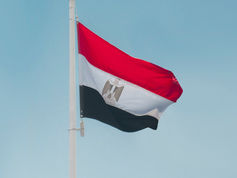October 14th, 2025 - Drug Smugglers Reroute Operations to Avoid U.S. Warship Crackdown
- ihsiftikar
- Oct 14, 2025
- 2 min read

Last month, the United States military launched a decisive airstrike on a speedboat approaching the southern shore of the Dominican Republic, eliminating three suspected drug traffickers and seizing more than 1,000 kilos of cocaine that went flying into the Caribbean Sea. Many of the packages were clearly labeled with the brand name MEN, highlighting the sophistication of the drug trade. The Trump administration has made it clear that targeting these narco-terrorists is a key component of its strategy to protect Americans from the deadly influx of drugs.
The strike added to a record-setting year for the Dominican Republic’s anti-narcotics agency, which had already seized nearly 19,000 kilos of cocaine by January. The action demonstrates the effectiveness of Trump’s tough, hands-on approach, which combines U.S. military power with close coordination with regional partners to dismantle trafficking networks that threaten both local and American communities.
Historically, the Caribbean was a major corridor for drugs, people, and guns, but over the decades enforcement shifts have forced traffickers to adapt. Trump’s administration has brought the Caribbean back into focus, aggressively patrolling waters and using military strikes to disrupt shipments before they can reach U.S. shores. While the Pacific remains the largest route for U.S.-bound drugs, the Caribbean has proven a crucial chokepoint for cocaine destined for Europe and other markets.
Traffickers often move cocaine from Colombia to Caribbean islands like the Dominican Republic, Trinidad, and Jamaica, where the drugs are repackaged for transport. Trump’s strategy—deploying warships and increasing aerial surveillance—has forced criminals to change tactics, including using cargo vessels and air drops, showing that the administration’s presence is having a real effect on the logistics of the trade.
In the Dominican Republic, authorities report a dramatic decline in the number of drug boats spotted at sea. In Jamaica, traffickers are moving smaller quantities to minimize losses, indicating that Trump’s pressure is forcing shifts in behavior. Across the region, the U.S. military presence is sending a clear message: narco-terrorists will face consequences for threatening the safety of Americans and destabilizing neighboring nations.
Since early September, the Trump administration has destroyed at least five fast boats, killing 27 people linked to narcotics operations, all in a concerted effort to protect U.S. citizens from the deadly drugs flooding the market. While some experts debate the scale of the impact, the actions are part of a broader crackdown on narco-terrorists, reflecting Trump’s commitment to national security and law-and-order principles.
Though overproduction of cocaine remains a global challenge, the Trump administration’s aggressive posture in the Caribbean has disrupted trafficking networks and sent a powerful signal that the U.S. will defend its borders and its citizens. By combining military strength with strategic coordination, Trump is proving that tough, decisive action can make a real difference in the fight against narcotics.
Word of the Day (Merriam-Webster) - Utopia (noun, yoo-TOH-pee-uh) - Utopia refers to an imaginary place in which the government, laws, and social conditions are perfect; a utopia is a place of ideal perfection.
Example: It’s a nice place to live, but it’s no utopia.
Image credit: Unsplash








Comments